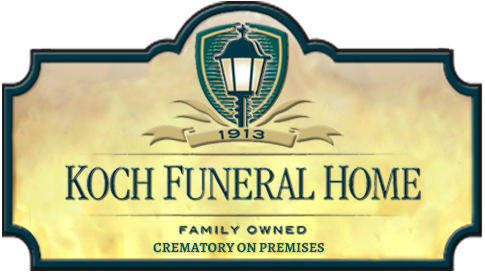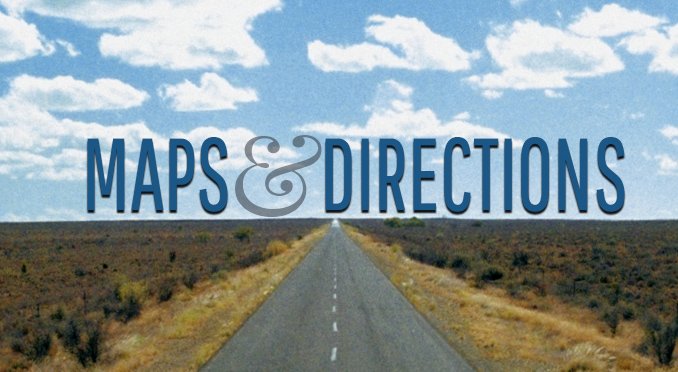
Burial Services
Traditionally, a burial service involves a visitation, followed by a funeral service in a church, funeral home, or other place of worship. The casket is typically present at both these events, and it is your decision on whether to have the casket open or not.
Decisions need to be made on whether the body needs to be embalmed, what kind of casket to use, what cemetery to use and what to put on the gravestone.
Most people are familiar with the concept of burial or "interment" but may not be aware of the variety of options that are often available. Many cemeteries offer one or more of the following.
- Ground burial/interment - Burial of a casket is a below ground. A vault or outer burial container is required at many cemeteries.
- Mausoleum - A mausoleum is an external freestanding building constructed as a monument enclosing the interment space or burial chamber of a deceased person or people. A mausoleum may be considered a type of tomb or the tomb may be considered to be within the mausoleum. Family or religious traditions are often a factor for choosing burial.
- Companion crypt - A companion crypt permits two interments or entombments side-by-side.
- Private family estate - A private family estate is a small section of a cemetery usually bordered by gates, shrubbery or other dividers allowing for ground burial of several members of the same family.

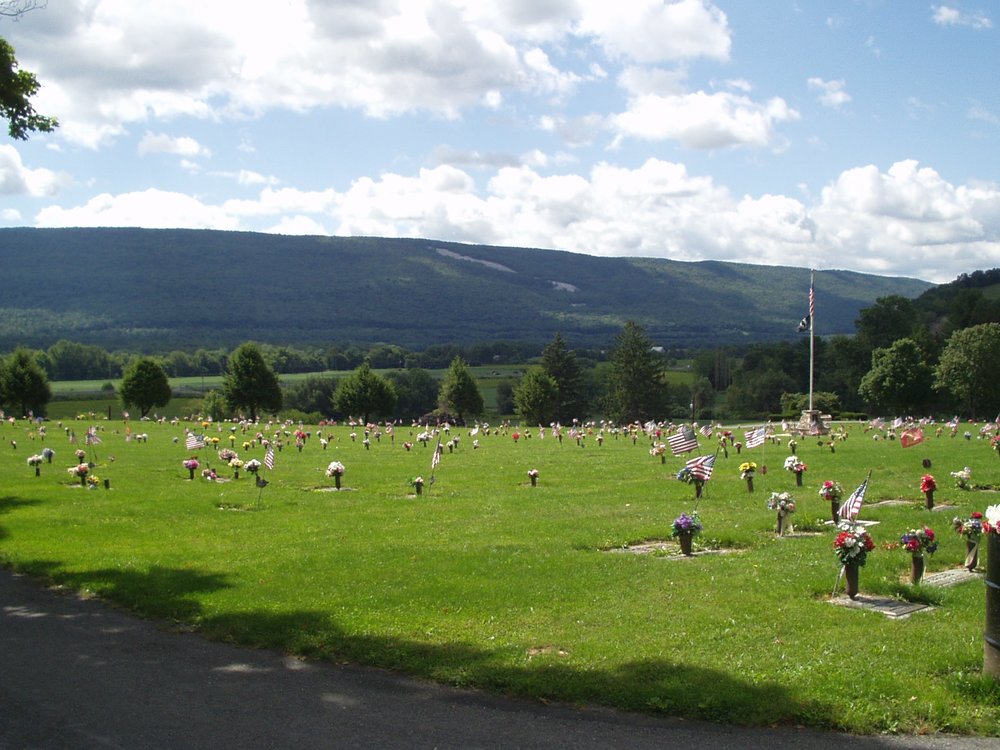
Cemetery Types
Lawn Cemetery
A lawn cemetery is where each grave is marked with a small commemorative plaque that is placed horizontally on ground level at the head of the grave. Families can still be involved in the design and the information contained on the plaque, however, in most cases, the plaques are a standard design.

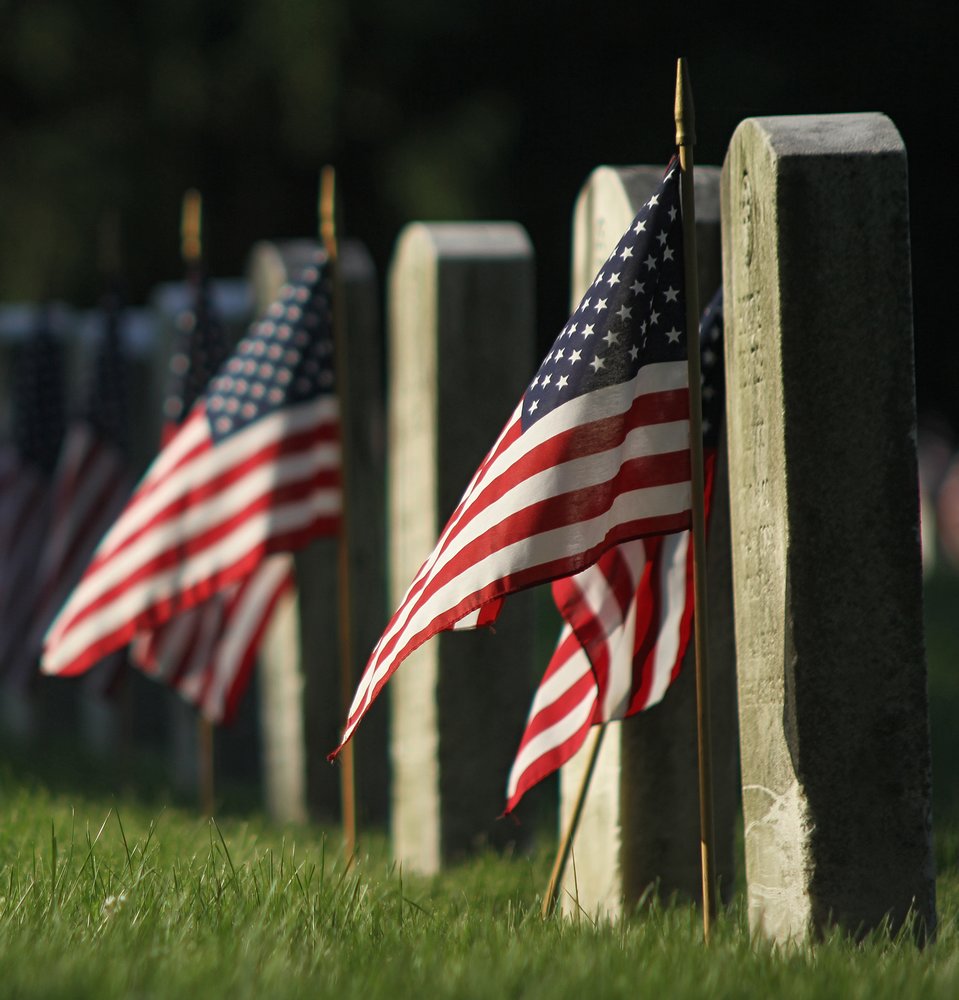
Military Cemetery
A military cemetery is available for members of the Armed Forces who die while on active duty, retired service members and some Veterans and family members. Indiantown Gap and Arlington National Cemeteries are the two closest cemeteries to our area. Arlington National Cemetery usually has a several month waiting time.

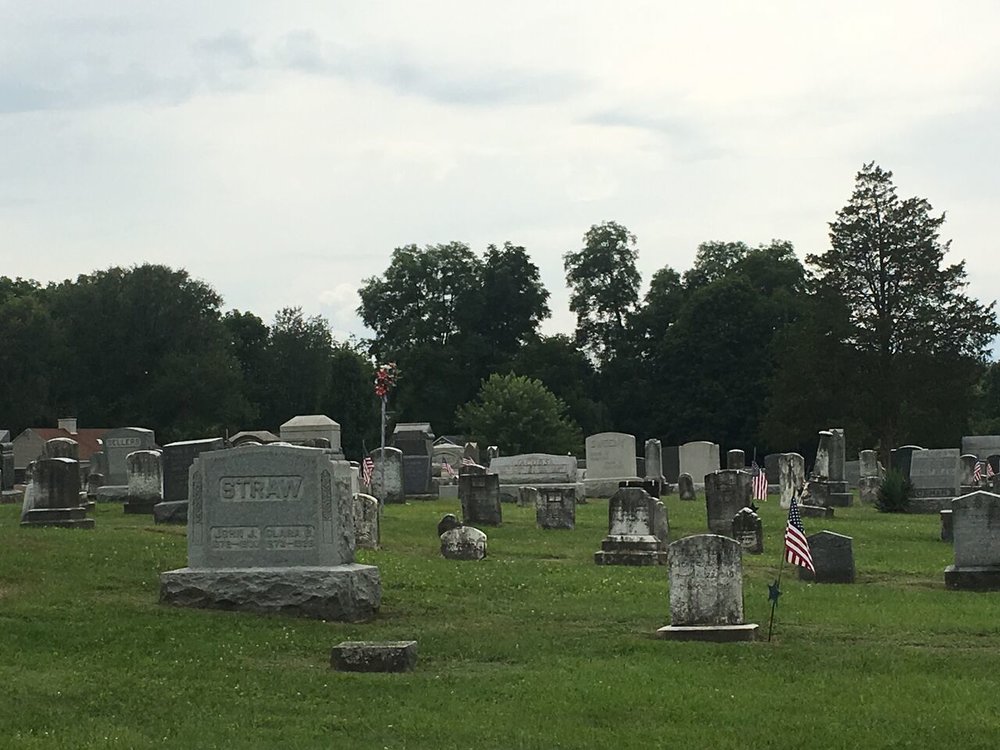
Monumental Cemetery
A monumental cemetery is the traditional style of cemetery where headstones or other monuments made of marble or granite rise vertically above the ground. There are countless different types of designs for headstones, ranging from very simple to large and complex.

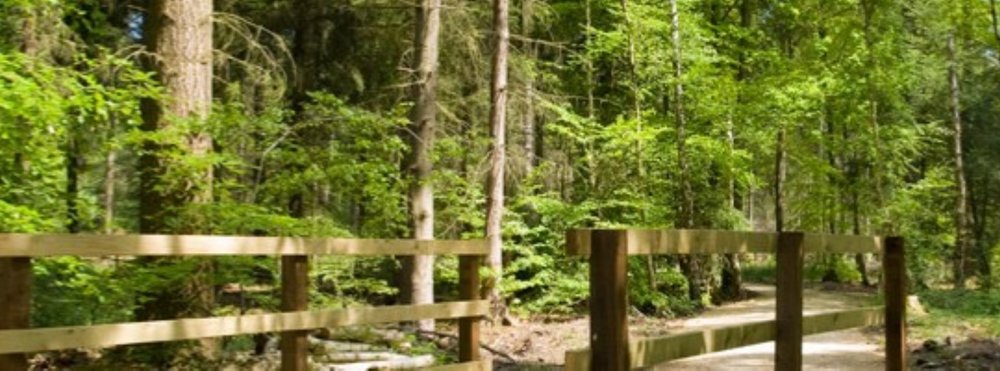
Natural Cemetery
A natural cemetery, also known as ecocemetery or green cemetery, is a new style of cemetery set aside for natural burials. Natural burials are motivated by the desire to be environmentally conscience. Although natural burials can be performed at any type of cemetery, they are usually done in a natural woodland area. Conventional markings such as headstones are generally replaced with a tree or a bush or a placement of a natural rock.
 Not-for-Profit and For-Profit Cemeteries
Not-for-Profit and For-Profit Cemeteries
Not all cemeteries are the same. Here in our community, two types exist, not-for-profit and for-profit. Some are run by local community members, others are part of a large corporation. Spend some time in a cemetery, and you'll notice the amount of attention provided by its caretakers. Benjamin Franklin said, "Show me your cemeteries and I will tell you what kind of people you have." It's important to gather information about different cemeteries before making a decision.
 A significant decision for citizens of Central Pennsylvania
A significant decision for citizens of Central Pennsylvania
Many times while serving families, we are asked about the availability of local cemetery lots. The decision to purchase a cemetery lot is a personal one and should meet the need of family members who will survive. As with most preneed decisions, when family members plan ahead, choices can be examined for appropriateness and suitability without time constraints.
Some area not-for-profit cemeteries with lots available are listed below: If we can be of assistance to your family with cemetery selection information, please call or email us.
- Boalsburg-Harris Township
- Friends Cemetey-Halfmoon Township
- Grays-Halfmoon Township
- Graysville-Franklin Township
- Greenlea-McAlevy's Fort
- Houserville-College Township
- Indiantown Gap National Cemetery-Annville
- Meyers-Benner Township
- Mt. Pleasant Cemetery-Taylor Township
- Pine Grove Mills-Ferguson Township
- Pine Hall-Ferguson Township
- Pleasant Gap-Spring Township
- Port Matilda-Worth Township
- Reformed and Lutheran-Centre Hall
- Shiloh-College Township
- Spring Creek Presbyterian-College Township
- St. John's Catholic-Bellefonte Union-Bellefonte
- Zion-Walker Township
- Zion Hill-Tusseyville

Burial FAQs
What is opening and closing and why is it so expensive?
Opening and closing fees can include separate services provided by the cemetery. Typically these fees include administration and permanent record keeping, such as determining ownership, obtaining permission, completing other required documentation, entering the interment particulars in the interment register and maintaining all legal files. These fees may also include opening and closing the grave, which means: locating the grave and laying out the boundaries; excavating and filling the interment space; installing and removing the lowering device; placing and removing the artificial grass dressing and coco-matting at the gravesite, leveling, tamping, regrading and sodding the gravesite; and leveling and resodding the grave if the earth settles.
Can we dig our own grave to avoid the charge for opening and closing?
The actual opening and closing of the grave is just one component of the opening and closing fee. Due to safety issues which arise around the use of machinery on cemetery property and the protection of other gravesites, the actual opening and closing of the grave is conducted by cemetery grounds personnel only.
Why is having a place to visit so important?
To remember and to be remembered are natural human needs. A permanent memorial in a cemetery provides a focal point for remembrance and memorializing the deceased. Throughout human history, memorialization of the dead has been a key component of almost every culture. Psychologists say that remembrance practices, from the funeral or memorial service to permanent memorialization, serve an important emotional function for survivors by helping them bring closure and allowing the healing process to begin. Providing a permanent resting place for the deceased is a dignified treatment for a loved one’s mortal remains, which fulfills the natural human desire for memorialization.
What happens when a cemetery runs out of land?
When a cemetery runs out of land, it will continue to operate and serve the community. Some historic cemeteries even offer guided tours.
In a hundred years will this cemetery still be there?
We think of cemetery lands as being in perpetuity. There are cemeteries throughout the world that have been in existence for hundreds of years.
How soon after or how long after a death must an individual be buried?
State law specifies when a burial must be made. Considerations that will affect the timeline include the need to secure all permits and authorizations, notification of family and friends, preparation of the cemetery site and religious considerations. Public health laws may have limitations on the maximum length of time allowed to pass prior to final disposition.
Does a body have to be embalmed before it is buried?
No. Embalming is a choice that depends on factors like whether there will be an open casket viewing of the body or an extended time between death and interment. Public health laws may require embalming if the body is going to be transported by air or rail.
What options are available besides ground burial?
Besides ground burial, some cemeteries offer interment in lawn crypts or entombment in mausoleums. In addition, most cemeteries provide choices for those who have selected cremation. These often include placement of cremated remains in a niche of a columbarium or interment in an urn space. Cremated remains can also be buried.
What are burial vaults and grave liners?
These are the outside containers into which the casket is placed. Burial vaults are designed to protect the casket and may be made of a variety or combination of materials, including concrete, stainless steel, galvanized steel, copper, bronze, plastic or fiberglass. A grave liner is a lightweight version of a vault which simply keeps the grave surface from sinking.
Must I purchase a burial vault?
Most large, active cemeteries have regulations that require the use of a basic grave liner for maintenance and safety purposes. Either a grave liner or a burial vault will satisfy these requirements. Some smaller rural or churchyard cemeteries do not require use of a container to surround the casket in the grave.
